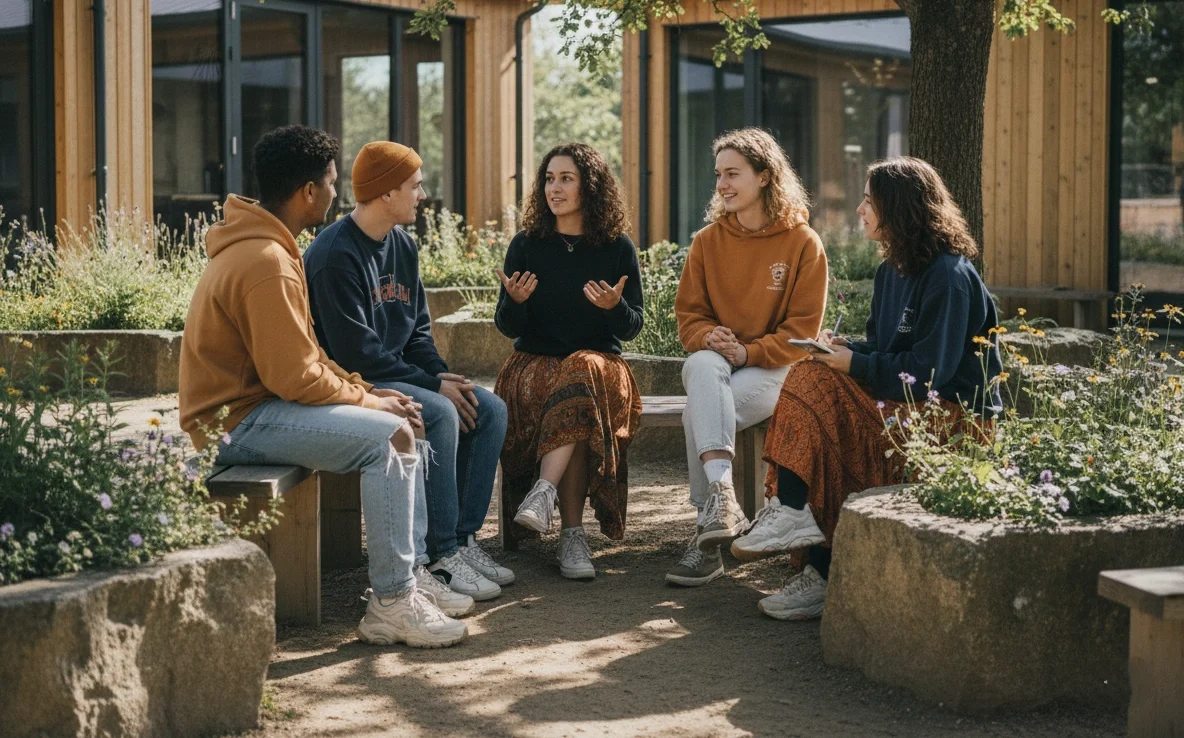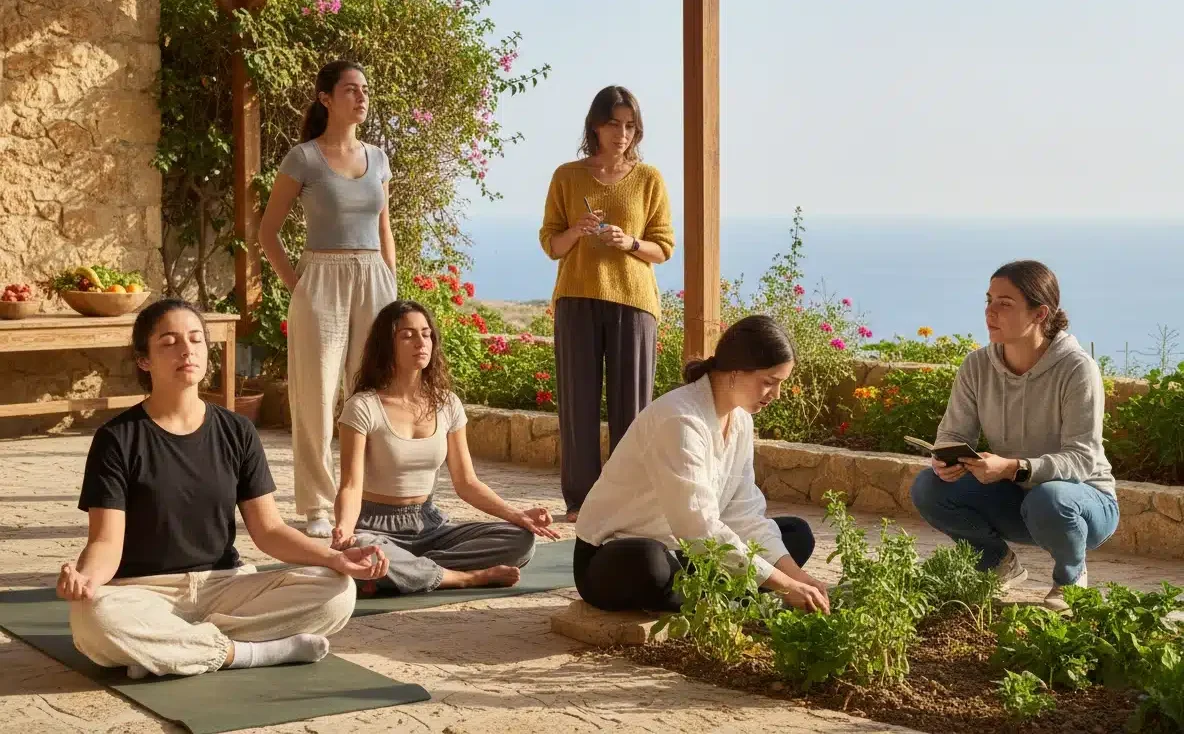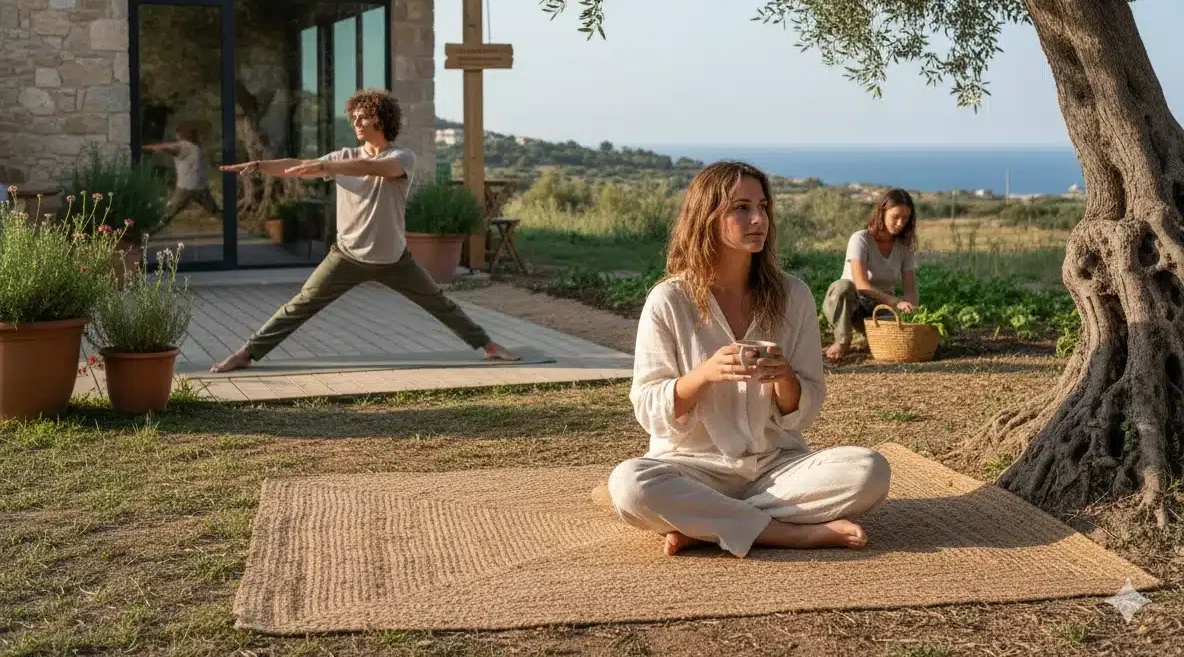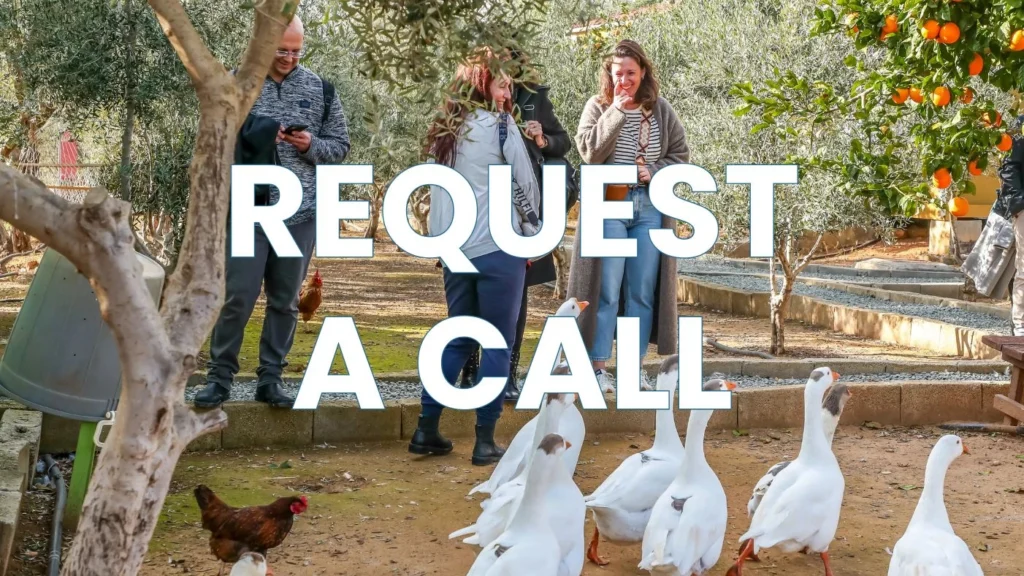The Importance of Peer Support in Young Adult Recovery
05 min read

Introduction: Why Recovery Shouldn’t Happen Alone
Recovery from addiction is deeply personal—but it doesn’t have to be a solitary journey. For young adults, connecting with peers who share similar struggles and goals can be one of the most powerful motivators for change.
At Holina Village in Cyprus, peer support is a core component of the recovery process, creating a sense of community and accountability that strengthens each resident’s path to healing.
What Is Peer Support in Recovery?
Peer support involves connecting with others who have faced similar challenges, whether they are currently in recovery or have already achieved long-term sobriety. It provides mutual understanding, encouragement, and practical advice.

Why Peer Support Matters for Young Adults
Breaking Isolation
Addiction often leads to social withdrawal. Being surrounded by peers helps residents feel less alone and more understood.
Encouraging Accountability
Peers can challenge each other to stay on track and celebrate each other’s milestones.
Building Healthy Relationships
Young adults learn to replace destructive social connections with positive, supportive ones.
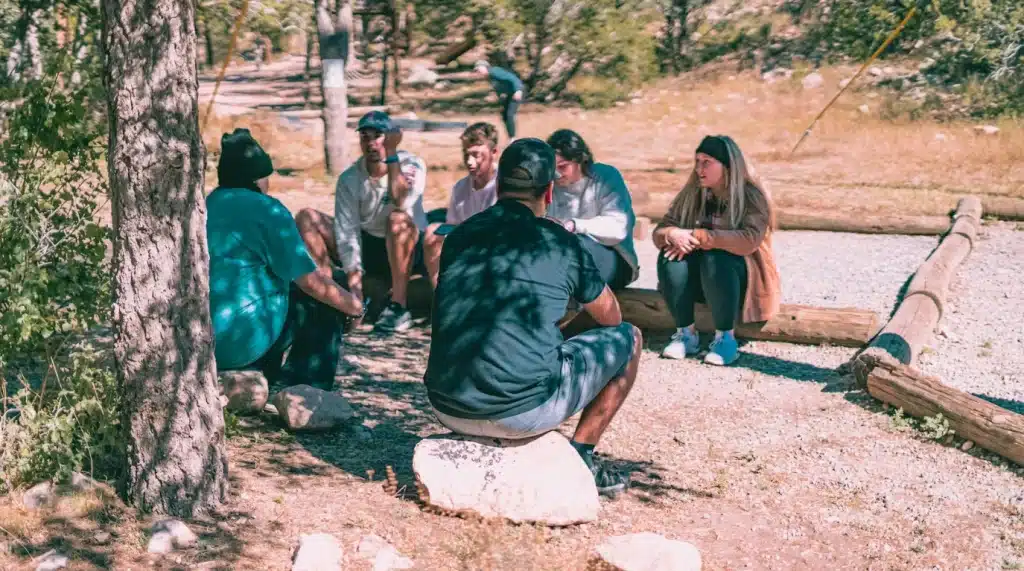
Peer Support at Holina Village
Therapeutic Community Model
Residents live, learn, and heal together, creating a shared sense of responsibility for the community’s well-being.
Group Therapy and Activities
Regular group therapy sessions, team sports, and creative workshops build trust and strengthen bonds.
Mentorship Opportunities
Residents further along in their recovery journey often mentor those who are newer to the program.

How Peer Support Strengthens Recovery
Shared Experiences: Hearing “I’ve been there too” can reduce shame and increase hope.
Collective Problem-Solving: Peers can offer advice based on real-life experiences.
Emotional Resilience: Support networks help residents manage setbacks without feeling like they’ve failed alone.
Long-Term Impact of Peer Relationships
Many residents maintain friendships and support networks after leaving Holina Village, providing ongoing motivation and encouragement well into life after rehab.
Conclusion: Recovery Is Stronger Together
For young adults, peer support is not just an emotional comfort—it’s a practical tool for building resilience, maintaining motivation, and preventing relapse. At Holina Village, a supportive community is central to the healing process.
📞 Contact Holina Village: +66 (0) 626 418 369
🌐 Learn more: holinacyprus.com
Frequently Asked Questions (FAQs)
1. What is the difference between peer support and group therapy?
Peer support is informal and ongoing, while group therapy is professionally led and structured.
2. Is peer support mandatory at Holina Village?
Participation in community activities is encouraged as part of the therapeutic model.
3. Do peer support relationships continue after leaving rehab?
Yes. Many residents maintain connections through alumni programs and online groups.
4. Can peer support replace professional therapy?
No. Peer support complements, but does not replace, evidence-based treatment.
5. How does peer support help prevent relapse?
It provides accountability, encouragement, and a network of people who understand the challenges of recovery.
6. Is peer support available for all residents, regardless of their stage of recovery?
Yes. Peer support is valuable for both new and more experienced residents in the program.




